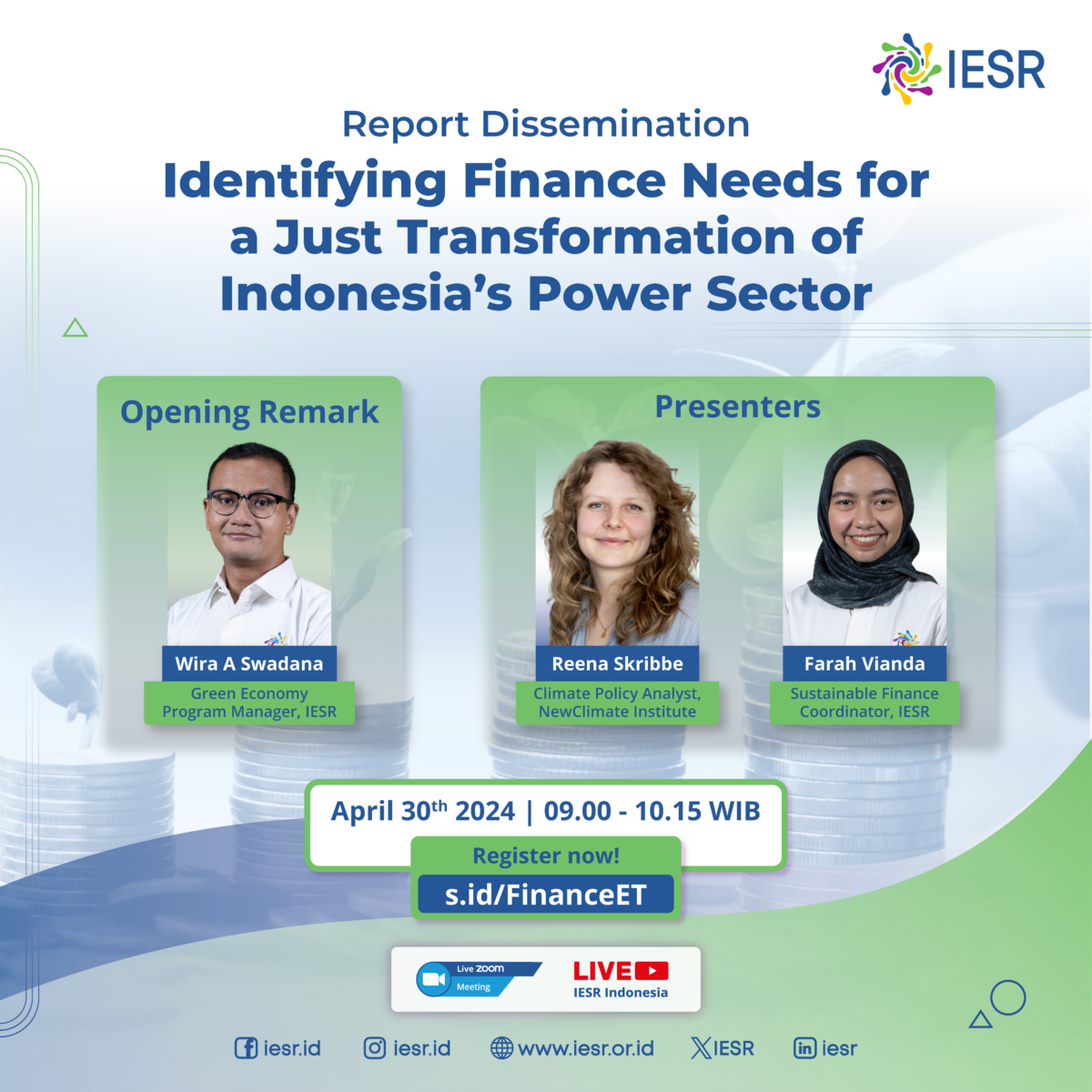
Launch of Report on Identifying Financing Needs for an Equitable Transformation of Indonesia’s Electricity Sector
Background
As one of the largest coal consuming and producing countries, Indonesia is ranked 6th as a global greenhouse gas emitter with a share of 3.11% of total global emissions (Climatewatch, 2024). In 2020 alone, the energy sector became the largest contributor to emissions, following the forestry and land sectors that have almost always dominated in the last decade. This is influenced by the high consumption of fossil energy, which is still dominated by 80% fossil energy over the past decade (IEA, 2023). Recognizing this, Indonesia has set a target to reach net zero by 2060 or earlier, and increased the energy sector target in the National Determined Contribution (NDC) to 31.89% or at least 915 MtonCO2 reduction. The government has also decided to no longer build new power plants and plans to retire several power plants listed in Presidential Regulation 112/2022. This step is a signal for Indonesia to prepare for the impact of fossil energy dependence as soon as possible.
The growing narrative of energy transition raises concerns due to the transition risks posed. It is no longer just technical and economic constraints that are being discussed, but also considering the social, environmental and economic aspects of those affected by the transition. From this, the discussion of the energy transition narrative becomes inseparable from the principle of justice. This is in line with the Paris Agreement which encourages a just transition, especially in the labor sector in accordance with the priority development agenda (EBRD, 2024). Global and national discourses related to energy transition in recent years have been very intense, especially related to the dismissal of fossil power plants closely related to the practice of just transition for people and communities around PLTU and in coal mining areas. In addition, the energy transition also requires an equitable approach in areas that will also be affected to support the transition, for example coal mining areas, mines and critical mineral industrial areas, and renewable power plant development areas. This was further strengthened at COP 28 in 2023 where at the ministerial meeting it was stated that the transition would not occur unless it was carried out in an equitable manner. This momentum has made the equitable transition agenda the focus of discussion both at the national and international levels.
Objective
This activity was carried out with the following objectives
- To collect information related to policies in building an equitable transition framework that is in accordance with aspects of national and regional economic development to be included in the medium-term development plan;
- Identifying challenges and opportunities faced by various stakeholders, especially CSOs, think tanks and academia in bringing the issue of equitable transition;
- Building partnerships with CSOs, think tanks, development partners, and academics to harmonize the messages delivered.
Presentation
Identifying finance needs for a just transformation of Indonesia’s power sector : An analysis using the Just Energy Transition Finance Needs tool // JET-FIN – Reena Skribbe and Farah Vianda
IndonesiaJETP_FinanceNeeds_NewClimate_IESR_FGD_30042024Speakers
-
Wira A. Swadana - Program Manager Ekonomi Hijau - IESR
-
Farah Vianda- Sustainable Finance Coordinator- Institute for Essential Services Reform
-
Reena Skribbe - New Climate Institute

